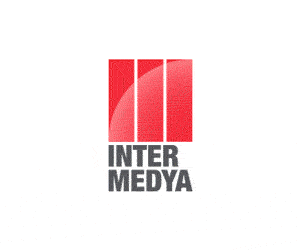
Indonesia’s Ministry of Communication and Informatics is on the warpath against online gambling and pornography – and owners of TV rights, and particularly expensive sports rights, could benefit.
In the latest crosshairs are social media platforms Telegram, based in Dubai, and X (Twitter).
Both global services are popping up in Indonesian headlines and in top-level policy discussions for enabling the distribution of content that domestic regulators deem inappropriate.
Taking a tough stand, the ministry is threatening to block Telegram and X in Indonesia if they don’t come to the table on managing content.
Indonesian officials have been telling local and regional media that Telegram is so far the only platform not toeing the Indonesian government’s line on online gambling.
Sources in Indonesia say Telegram has already been notified of the looming block if it does not remove gambling-related content, and has been given until this week to respond.
X, on the other hand, has raised regulatory ire for new policies that formally allow users to show sexually explicit content, including pornography or content “intended to cause sexual arousal”, as long as it is clearly labelled. This includes AI-generated imagery. In May this year, X said that “sexual expression, whether visual or written, can be a legitimate form of artistic expression”.
Driving the latest initiative for Indonesian regulators is the director-general of application and informatics, Semuel Abrijani Pangerapan, whom Telegram will know from July 2017, when Indonesia took a hard line on failure to meet government requirements.
At the time, the ministry ordered local ISPs to block 11 domains related to the web-based Telegram site. The ministry said the sites were being used to spread radicalism and terrorism content.
Earlier this month, Pangerapan was quoted in local news site, Kompas.com, as saying that Telegram has been warned to remove 600 pieces of content.
The platform will be blocked in Indonesia if a third w...
Indonesia’s Ministry of Communication and Informatics is on the warpath against online gambling and pornography – and owners of TV rights, and particularly expensive sports rights, could benefit.
In the latest crosshairs are social media platforms Telegram, based in Dubai, and X (Twitter).
Both global services are popping up in Indonesian headlines and in top-level policy discussions for enabling the distribution of content that domestic regulators deem inappropriate.
Taking a tough stand, the ministry is threatening to block Telegram and X in Indonesia if they don’t come to the table on managing content.
Indonesian officials have been telling local and regional media that Telegram is so far the only platform not toeing the Indonesian government’s line on online gambling.
Sources in Indonesia say Telegram has already been notified of the looming block if it does not remove gambling-related content, and has been given until this week to respond.
X, on the other hand, has raised regulatory ire for new policies that formally allow users to show sexually explicit content, including pornography or content “intended to cause sexual arousal”, as long as it is clearly labelled. This includes AI-generated imagery. In May this year, X said that “sexual expression, whether visual or written, can be a legitimate form of artistic expression”.
Driving the latest initiative for Indonesian regulators is the director-general of application and informatics, Semuel Abrijani Pangerapan, whom Telegram will know from July 2017, when Indonesia took a hard line on failure to meet government requirements.
At the time, the ministry ordered local ISPs to block 11 domains related to the web-based Telegram site. The ministry said the sites were being used to spread radicalism and terrorism content.
Earlier this month, Pangerapan was quoted in local news site, Kompas.com, as saying that Telegram has been warned to remove 600 pieces of content.
The platform will be blocked in Indonesia if a third warning letter is ignored.
Indonesia’s TV rights holders and platforms, meanwhile, are keeping a close eye on the government’s anti-online gambling/pornography initiatives, pushing for an expansion of the programmes to include online video piracy.
Indonesian platform Vidio is at the forefront of the latest battle, celebrating two arrests in the past three months for illegal distribution of local drama titles on Telegram channels.
Vidio is also involved in a large-scale in-house operation to protect its sports rights.


















